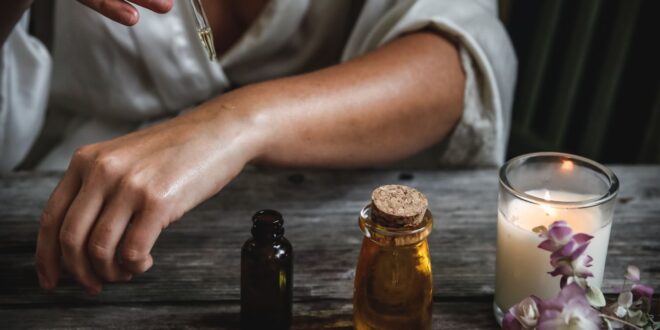Aromatherapy, also known as essential oils therapy, pertains to using a wide range of traditional and alternative compounds for various illnesses.
In general, practitioners believed that the scents of the oils might stimulate the nerves in our nostrils, sending signals to certain regions of the brain to trigger the relaxation response.
Table of Contents
What is it used for?
People usually purchase a variety of oils from shops like Kumi, where they could pick among essential oils derived from the roots, flowers, stalks, rinds, leaves, and bark of plants.
This ingredient would be mixed with other substances, such as lotion, oil, or alcohol. The individual would apply the substance to their skin through spraying or inhaling its aroma. Yet, in some cases, practitioners would be instructed to pour the oils into their bathwater.
Aromatherapy has been used to reduce stress and aid with a variety of mental and physical ailments since the early 1900s in Europe. Particularly insomnia, depression, infections, high blood pressure, and burns. However, a limited study supports the claim that essential oils indeed cure or prevent these illnesses.
Are they safe?
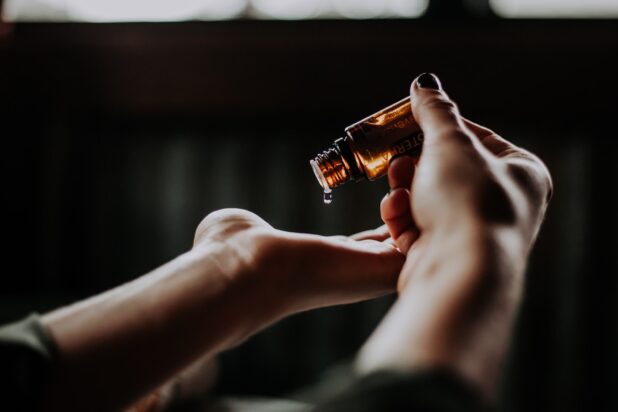
Suppose you’re looking for a way to ease the pain brought by your medical condition. In that case, it’s wise that you first approach your doctor regarding the idea of aromatherapy since the common practitioners of this method aren’t explicitly licensed.
On the other hand, licensed professionals perform the activity, including counselors, massage therapists, and nurses.
There are cases that certain people notice that they have an allergic reaction to the essential oils. To find out whether you’re one of them, conduct an allergy test by diluting your preferred essential oil in a carrier oil at a concentration twice that of what you’ll be using on a regular basis. Then rub the said mixture into the area sized at a quarter on the inside part of your forearm.
If within 48 hours you haven’t had an adverse reaction, it’s safe to assume that you’ll be able to use the substance for your desired purpose.
Ingesting the oil is strictly not recommended, as it could cause kidney or liver failure due to interaction with other substances in the gut.
Who should avoid aromatherapy?
Aromatherapy offers several benefits for the user, yet it’s hazardous to people who have had a history of chronic disease without first consulting their respective doctor.
For instance, individuals diagnosed with asthma, chronic lung illness, or respiratory allergies shouldn’t depend on the promising results brought by the practice, as there’s no evidence backing up this belief.
Truth be told, inhaling the evaporated oil particles could trap your airways and trigger a severe asthma attack. Moreover, the emitted strong odors consist of volatile organic compounds or VOCs.
It’s a type of chemical that impacts the indoor quality of air, closely similar to what scented candles, air fresheners, and incense do.
On another note, it could also irritate the skin, especially in the sections of the mouth, eyes, and nose membranes.
Apart from these, aromatherapy could threaten pregnant women in their first trimester of pregnancy because the practice could lead to uterine contractions or hurt the baby’s early developmental stage, as stated by Dr. Jill Edwards, who has specialization in prenatal care.
Essential oils such as sage, rosemary, or juniper are one of the few examples that could incur this danger.
Additionally, children under five should stay away from the substance as accidental ingestion would cause a life-threatening situation due to poisoning.
Who is encouraged?
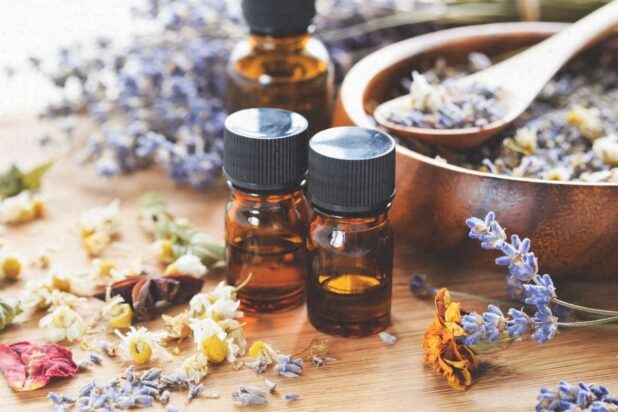
In particular, most are encouraged to join the practice, even more, if they’re suffering from any of the following:
- Circulatory problem
- Insomnia
- Fatigue
- Agitation
- Anxiety
- Depression
- Stress
- Nausea
- Body ache
- Menopausal problem
- Hair loss
- Menstrual problem
A couple of people diagnosed with psoriasis may even find comfort in performing the activity. However, an expert opinion from a healthcare professional should be requested concerning the proper use and appropriate application of the oils.
Other issues, like digestive problems, could be relieved through the topical application of peppermint oil. Meanwhile, mouth sores and toothaches should benefit from clove oil. Like the first one, this requires topical application, and ingestion is highly discouraged.
Which one should I use?
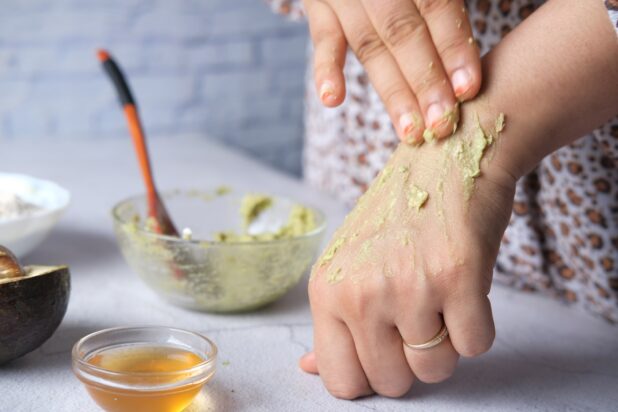
You may find yourself utilizing various oils in aromatherapy depending on your requirements. In case you needed a guide, here are some possible options for you:
Eucalyptus
Oils derived from this plant effectively help with flu or cold symptoms by relieving the airways.
Tea tree
This kind of oil is best recognized for its disinfectant, antimicrobial, and antiseptic properties. Often, tea tree oils are utilized in skincare or shampoo products and have shown benefits like treating burns, bites, and acne.
Jasmine
Jasmine oil, on the other hand, is described as an aphrodisiac. Despite the lack of studies on this subject, a few types of research have disclosed that jasmine oil increases the beta waves responsible for a person’s level of alertness.
Something that would help if you typically find yourself distracted at work and give you that energy boost.
How it would work
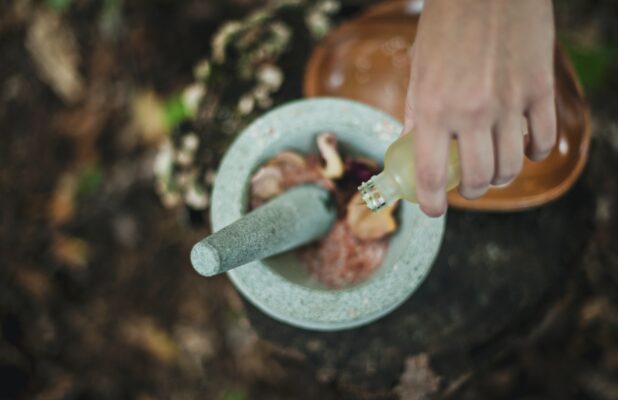
If aromatherapy is ideal for you, approaching an aromatherapist would guarantee a good experience.
At first, the professional would thoroughly review your medical background, diet, current health history, and lifestyle to pinpoint if the procedure is safe to conduct.
If you’ve passed this check, the aromatherapist would identify a single or blend of oils suitable for your holistic wellness based on the information taken from your physical and mental stability, as well as putting consideration on your preferences.
Soon enough, you’ll receive an aromatherapy service.
Suggestions in buying oils
If the thought of aromatherapy piques your interest, you have to keep in mind to only go after pure oils with no added synthetic oils or other ingredients. Yes, that includes items labeled as a fragrance oil.
Also, make sure that they are stored in dark glass bottles as this type protects the quality of the said oil from being damaged by either plastic or light. You might even encounter sellers who only offer essential oils packaged in bottles that could hold at least 4 ounces.
Lastly, don’t forget to check the label regarding the product’s manufacturer. Even if essential oils aren’t heavily regulated by the FDA so long as the producer doesn’t make false scientific claims, the sector still verifies if it’s safe to use by consumers.
Likewise, knowing the details of manufacture allows you to determine that the company legally operates and identify the Latin botanical name of the oil’s source.
An example would be peppermint oil. If you buy this from a trusted store, it should mention “Mentha piperita” and indicate what specific plant part the oil was extracted from.
Additionally, it should mention which extraction method was employed, either through mechanical cold pressing or the distillation process.
If you want to try alternative treatments, make sure to talk to your doctor first. Or if you are thinking of combining both conventional medical treatment and alternative therapy.
We highly request that you don’t suddenly forgo your conventional medical treatments for the sake of alternative therapy, as this could be harmful to your overall health.
 World Magazine 2024
World Magazine 2024
